Devil In The Flesh
What turned Moninder Singh Pandherand his man Friday Surindra Koli intobloodthirsty fiends?
- Both Were Sexual Deviants: This, the police claim, has been established by its investigation as well as the narco-analysis of master and servant. Koli scouted for victims and brought them to Pandher's residence in Noida. They were later killed.
- The Organ Trade Angle: The precision with which the bodies were cut has led to the organ trade angle being investigated. The police has not ruled it out but has left it to the CBI to further examine this possibility.
- Duo Killed For Fun: The meticulous manner in which the bodies of the victims were chopped has led the police to explore the possibility that both Pandher and Koli derived pleasure from the very act of killing.
- Victims Better Dead: After subjecting the children to sexual abuse, the two may have thought it best to kill them rather than risk relatives lodging police complaints.
***
"People like Moninder Singh Pandher can be very charming andcaring if they want to be. In fact, they may appear normal to people around them. Theyhave this remarkable ability of hiding their other darker self from the world."
—Dr Rajat Mitra, crime psychologist
working closely with the Delhi police
andwho visited Nithari after the
serial killings came to light
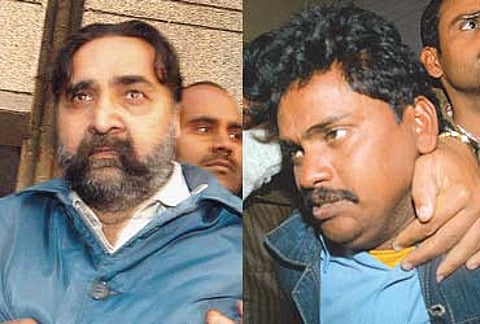
Urbane and educated, Moninder may have had a taste for expensive whisky and wine. But the police interrogation of this businessman and his servant accomplice, and the subsequent narco tests conducted on the duo, reveal that Moninder had a diseased and perverted side to him. He sexually abused women and children and he was certainly aware that the bodies of his victims were chopped into pieces, then disposed of in a drain outside his double-storeyed bungalow in the posh Sector 31 of Noida. While Moninder has been described by the police as a tough nut to crack, his partner in crime, Koli, has been singing. He not only confessed to his role in the diabolical crimes but has also admitted to heinous acts of necrophilia and cannibalism.
Narco-analysis tests conducted on Moninder and Koli at the Forensic Science Laboratory in Gandhinagar have been revealing. Though the results of these tests are not admissible in court, sources say many startling facts have emerged. The truth serum made Moninder admit that he was estranged from his wife because she refused to give in to many of his sexual demands. According to him, he wanted her to participate in sexual orgies "involving many women". He admitted to having orgies in his Noida residence in his wife’s absence—she having moved to Chandigarh a year ago. When seized by sexual frenzy, Moninder would be like an animal. "It could be anybody. A girl or a boy, teenager or a mere child. That is what is emerging from the narco-analysis test,’’ a senior UP police official told Outlook.
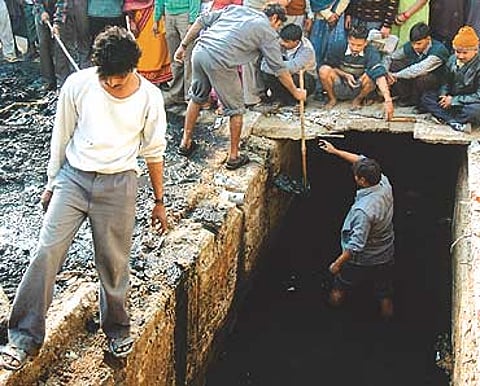
The police found 17 skulls and a large number of bones from the drain outside the Noida house, indicating that the number of victims could be higher than the 17 located so far. Inside Moninder’s bungalow they found surgical knives, gloves, a butcher’s knife, a large number of blood-stained clothes, undergarments and school bags strewn around. A variety of pornographic material—books, magazines and movies—were recovered from Moninder’s bedroom.
The not-so-imposing yellow bungalow, last in the lane and well shielded by trees, offers little glimpse of the people residing inside. The police party which went in on December 29 says the calm facade was misleading. "In the five-room bungalow, we found blood-stains on the floor of one bathroom, in the lobby and vomit on the sofa—probably of Payal, one of the girls murdered in the house," an official told Outlook. It was Payal’s father’s persistence that led the police to stumble on the series of horrific crimes happening right under their nose.
According to a senior official who interrogated the master and servant, Moninder showed no signs of remorse when confronted with the photographs and the remains of the children. "He kept repeating he was a lonely man who desired companionship and often directed his servant Koli to fetch women. Kisi ko bhi lao. Koi bhi chalega. (Fetch me someone. Anyone will do) was the constant refrain," recalls the official. On the other hand, when Koli, father of a three-year-old daughter, was shown the remains of the children, he broke down and confessed to sexually abusing and killing them.
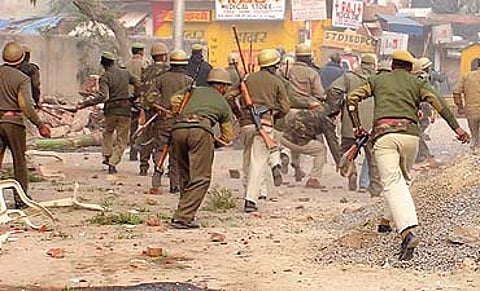
But then it was not all about an unassuming boy turning into a psychopath. As Outlook met Moninder’s relatives, the picture that emerged was that of a man who had a troubled past and who was a loner. He lost his mother when he was young and was brought up by his father who was known for his womanising ways. Moninder was a failed businessman who ran down his father’s transport business from 200 trucks to 25. He grew up to have bitter fights with his brother and sister which continue to this day.
In fact, ever since his grisly activities in Noida came to light, neither his wife nor his siblings have tried to meet him and organise help and support. The huge 2,000-square-yard family home in Chandigarh’s sector 27 has a posse of policemen outside, and few visitors, except from the media.
Moninder is estranged from his elder brother Iqbal Singh and his sister Manjit Kochhar over his late father Sampooran Singh Pandher’s property. Moninder’s brother and sister see him as the usurper of most of their father’s wealth. They allege that he fabricated Sampooran’s will which has led to a bitter battle between the siblings. Both Manjit and Iqbal have been disinherited in the will. Family sources disclose that there were frequent fights over the property.
Both Moninder and his brother are well known for their drinking binges. Iqbal, now in his sixties, is in a disoriented state, while Moninder’s liver and pancreas have suffered extensive damage. Moninder comes through as a debauched man trying hard to stay away from alcohol and struggling to rebuild the family business which once flourished under his father. His womanising is also something of an open secret in the family. Even son Karan, when asked whether it was true that call girls used to frequent the Noida house, admitted, "He was alone there so he may have brought girls there."
According to relatives, Moninder had begun to show signs of cracking lately. At his nephew’s wedding reception last month in Chandigarh, he came drunk and flew into a rage when he saw his brother’s family. He later walked out of the reception. Recalls a family member: "I really thought he had lost it from the manner in which he was behaving that day."
For years the entire Pandher clan lived together in their Chandigarh house till 2001, when Iqbal and his family were evicted. But relatives say that though they were ostensibly living as a joint family, the atmosphere at home completely lacked any warmth. "Even though we were all living under one roof for many years, we hardly ever communicated with each other or had meals together. It was very odd," disclosed a member of the household.
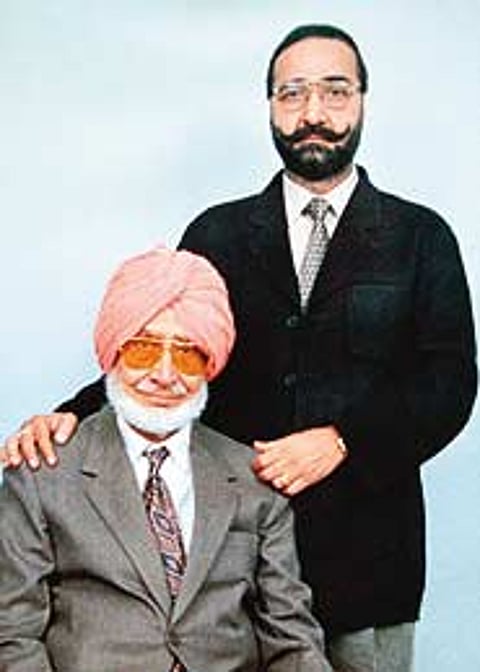
In recent years, Moninder had become a rare visitor to Chandigarh and preferred to live most of the time in the Noida house which he bought in March 2004. In June 2005, his wife Davinder Kaur suddenly returned to Chandigarh. Though she told Outlook that she "came back to look after her ailing father-in-law", Moninder’s relatives insist that she had serious problems with her husband. "It is much more than a tiff. Perhaps she saw or sensed something which she could not stomach," remarked a family member. Many in the family believe that it was Davinder Kaur’s decision to move out of the Noida house that has brought things to such a pass.
Extra-marital liaisons is something Moninder has lived with most of his life. Family insiders disclose that his father was involved with several women after his wife’s death. One woman, Jasmer Kaur, was living in the Pandher family home in Chandigarh till Sampooran Singh died last May. He had willed certain properties to her too. It’s only after his death that Jasmer Kaur was evicted from the house by Moninder.
According to Mitra, narco-analysis and brain-mapping cannot be real indicators of a person’s psyche. "Both Pandher and Koli appear to be hardened criminals. It is not easy to access information that such people want to hide even through tests. A person may or may not tell the truth. He may even not be rational. The narco-analysis tests claim to access another level of consciousness. However, one cannot alter consciousness to gather information that investigators may need. That is why there is no alternate to the age-old process of interviewing, and that too by experts. That is the only way to understand how their mind functions," he explains. What could the Moninder-Surendra relationship be like? Mitra says there seems to be a strong symbiotic attachment. "There is a camaraderie that binds them together. They are not likely to betray each other. For people like them, it is them versus the society. In their mind, they are not doing anything wrong," he says
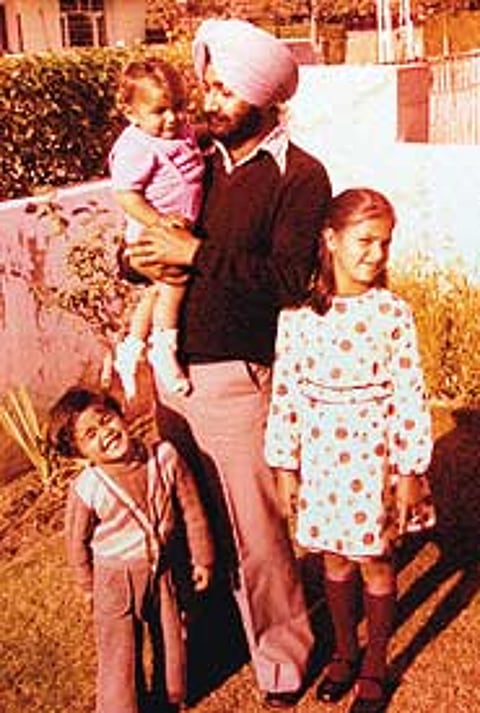
Now that the case has been handed over to the CBI, there might be a second round of narco-analysis tests in Bangalore. Also, one of the CBI teams is already in touch with psychoanalysts and crime psychologists to get a better insight into the working of such skewed minds. "We plan to subject Pandher and Koli to psychoanalysis to get to know their motive clearly. So far, they have only been interrogated by the police and not by professionals," a CBI officer told Outlook.
He is hopeful that a clearer picture will emerge in the days to come. As for the families of the victims, the cash and plots offered by the UP government provides little solace. "I do not want either the money or the land. I have one demand: punish the guilty," insists Mukesh Kumar. He learnt of his five-year-old daughter’s death when he saw Surindra Koli admit on television that he had killed her. Other villagers say that their hopes are now pinned on a CBI investigation. They have little faith in the local police. A speedy yet thorough investigation alone can restore their faith in the system.
By Bhavna Vij-Aurora, Anuradha Raman in Delhi and Chander Suta Dogra in Chandigarh with Debarshi Dasgupta
Tags